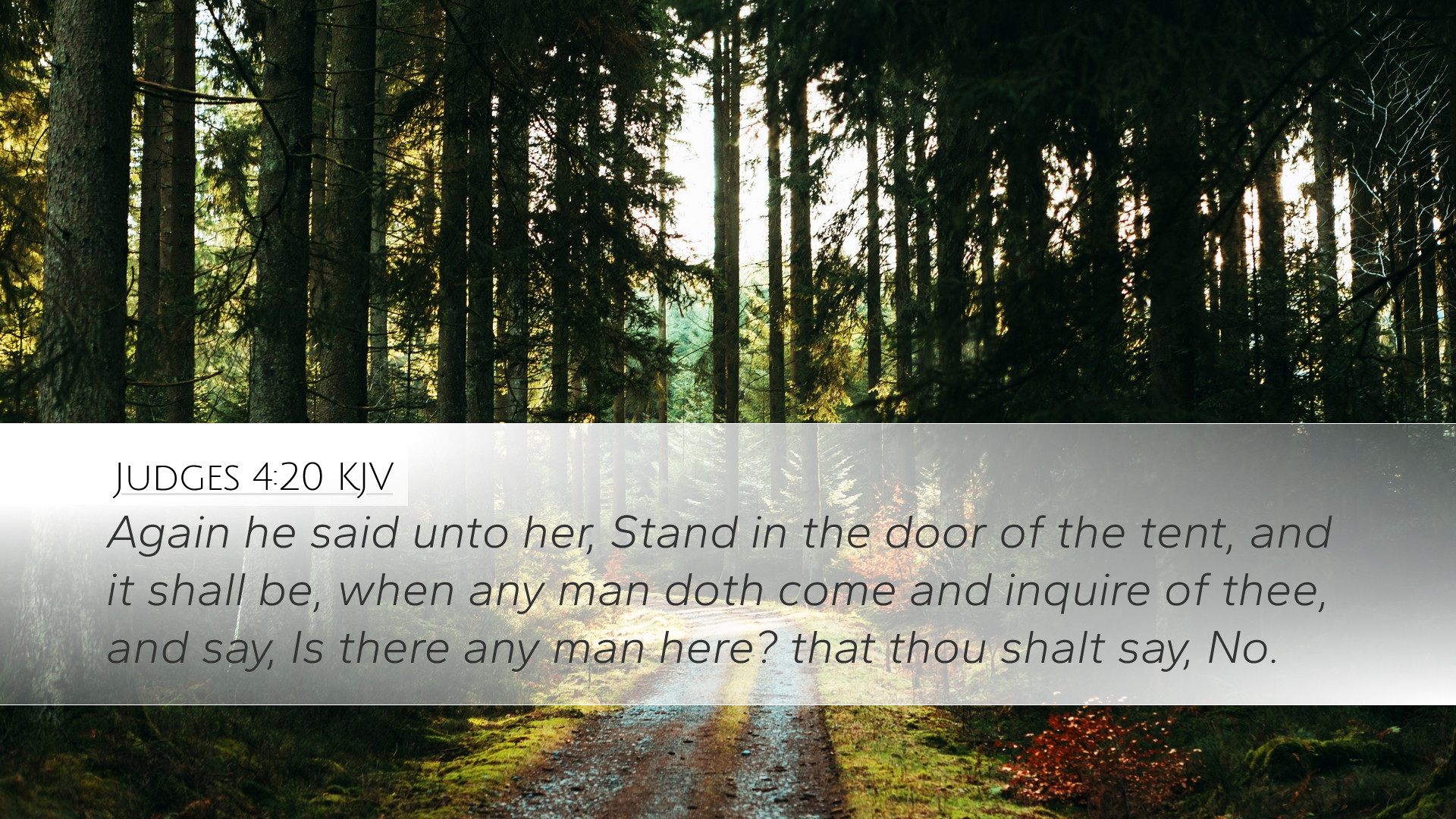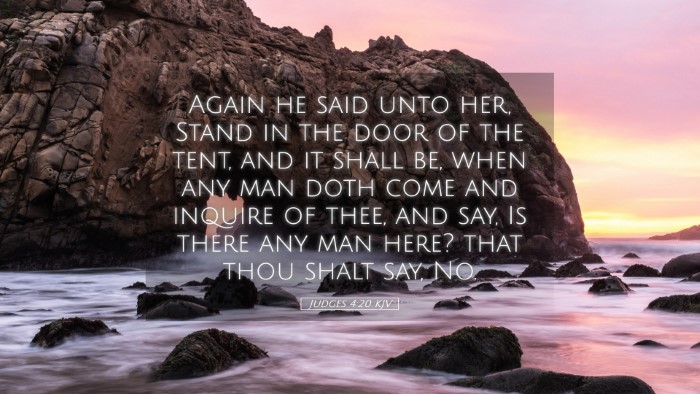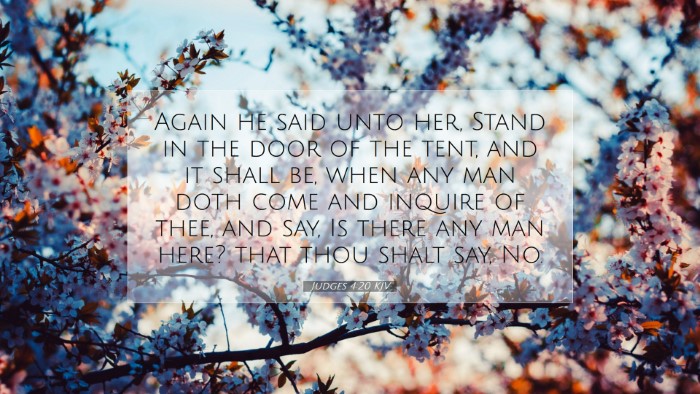Old Testament
Genesis Exodus Leviticus Numbers Deuteronomy Joshua Judges Ruth 1 Samuel 2 Samuel 1 Kings 2 Kings 1 Chronicles 2 Chronicles Ezra Nehemiah Esther Job Psalms Proverbs Ecclesiastes Song of Solomon Isaiah Jeremiah Lamentations Ezekiel Daniel Hosea Joel Amos Obadiah Jonah Micah Nahum Habakkuk Zephaniah Haggai Zechariah MalachiJudges 4:20
Judges 4:20 KJV
Again he said unto her, Stand in the door of the tent, and it shall be, when any man doth come and inquire of thee, and say, Is there any man here? that thou shalt say, No.
Judges 4:20 Bible Commentary
Bible Commentary on Judges 4:20
Judges 4:20 states, "He said unto her, If thou wilt go with me, then I will go: but if thou wilt not go with me, then I will not go." This verse is pivotal within the narrative of Deborah and Barak, revealing the dynamics of leadership, courage, and divine guidance.
Contextual Overview
The Book of Judges describes a tumultuous period in Israel's history characterized by the cyclical pattern of sin, oppression, repentance, and deliverance. In Chapter 4, we see Deborah, a prophetess and judge, calling Barak to lead Israel against the Canaanite oppressor, Sisera.
Commentary Insights
Several prominent commentators provide critical insights into this verse, offering theological and practical reflections suitable for pastors, students, and scholars.
Matthew Henry
Leadership and Dependence: Henry emphasizes the importance of Barak’s request to Deborah. He interprets this as a significant reflection of Barak's humility and recognition of divine authority. Barak's hesitance to go alone underscores the necessity of spiritual encouragement and accountability in leadership.
The Role of Women: Henry also notes the critical role that Deborah plays in this narrative. Her position as a prophetess and leader highlights the contributions of women in the service of God. This challenges the cultural norms of the time and affirms that God's empowerment is not limited by gender.
Albert Barnes
Mutual Respect and Support: Barnes focuses on the relational dynamics between Barak and Deborah. He suggests that Barak’s request to have Deborah accompany him reflects not just his fear but an understanding that the success of their mission hinges on divine presence. This can be interpreted as a model for collaborative ministry.
Divine Assurance: Barnes also points out that Deborah’s presence acts as a channel of reassurance. It signifies God’s continued guidance and support, affirming that leaders are often called to rely on others within the community to fulfill God's mission.
Adam Clarke
Fear and Courage: Clarke takes a psychological approach to Barak’s decision, analyzing his fear as a natural human response in the face of overwhelming odds. He argues that Barak’s insistence on Deborah's presence shows an acknowledgment of the spiritual warfare they are engaged in, and that divine support is essential for overcoming fear.
Theological Implications: Clarke also emphasizes the theological significance of this partnership in leadership. He identifies a pattern where God often uses humble means to achieve great ends, reinforcing the principle that God works through flawed and fearful individuals. This serves as an encouraging reminder for contemporary leaders.
Theological and Practical Applications
- Courage in Leadership: The verse represents the tension between faith and fear. Pastors and leaders can draw from this narrative to encourage both personal courage and the importance of seeking support from others in ministry.
- The Role of Women in Ministry: The story exemplifies God’s use of women in significant leadership roles, showing that true leadership is determined by obedience to God's calling, regardless of gender.
- Community and Collaboration: This account in Judges invites reflection on the importance of collaborative ministry. It underscores the idea that success in God's mission often requires partnership with others who are spiritually grounded.
- Faith in God’s Provision: Barak’s request emphasizes reliance on God’s provision and guidance in all undertakings. Students and theologians can explore how faith is acted upon in times of uncertainty.
Conclusion
Judges 4:20 encapsulates a moment of profound significance in the broader narrative of Israel's deliverance. The interaction between Barak and Deborah provides rich insights into leadership, faith, and divine cooperation. It highlights the necessity of support in leadership roles and reaffirms the divine orchestration of history that often challenges human expectations, encouraging today’s readers to trust in God’s guidance in their own journeys of faith and service.


